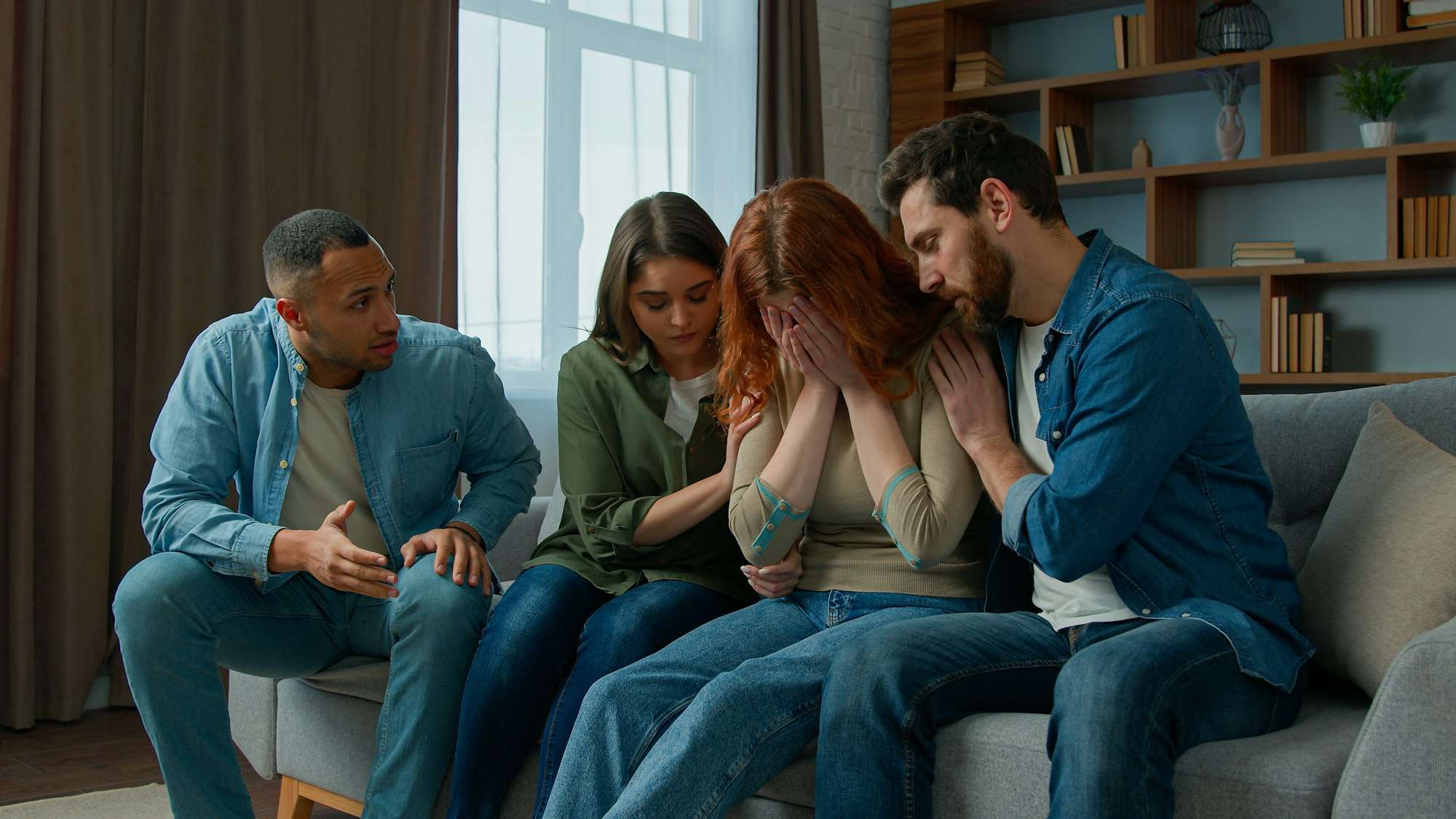Trazodone is an antidepressant that treats major depressive disorder (MDD). Due to its sedative effects, doctors sometimes prescribe trazodone to treat insomnia. However, long-term use can lead to increased tolerance and dependence. As a result, you could develop trazodone withdrawal symptoms if you stop taking trazodone.
Detox ATL in Atlanta, Georgia, can help you find treatment solutions for trazodone withdrawal. If you are making changes to your prescription drugs and are worried about trazodone withdrawal symptoms, visit us to detox safely.
What Are Trazodone Withdrawal Symptoms?
Withdrawal symptoms occur when you stop using a particular substance after long-term use. You can experience withdrawal symptoms from prescription drugs, like trazodone and Ambien, illicit drugs, or legal recreational drugs, like alcohol. You are more likely to have withdrawal symptoms when you are physically dependent on a substance.
Even if you take trazodone as prescribed, you could develop a physical dependency. This doesn’t necessarily mean that you are addicted. Rather, your body and mind now rely on trazodone to function normally.
Withdrawal symptoms are adverse reactions to no longer having trazodone in your system. Your body and mind now need time to adjust to the sudden change. Stopping trazodone use can result in the following withdrawal symptoms:
- Mood swings and irritability
- Elevated mood and energy (hypomania)
- Anxiety
- Stomach ache and nausea
- Headache or migraine
- Fever and chills
- Shakiness and tremors
- Vivid and distressing dreams
- Sweating
- Seizures
- Dizziness
In addition, if you take trazodone for insomnia or depression, your symptoms could return during withdrawal. Furthermore, if you have a psychotic condition like schizophrenia or bipolar disorder with psychosis, you might have hallucinations or delusions during trazodone withdrawal.
Therefore, while trazodone withdrawal symptoms are generally mild, if you have an underlying mental health condition, your symptoms could worsen or return during withdrawal. You might even be at risk of self-harm or suicidal behaviors during withdrawal. That is why it is important to get professional detox services when you stop taking trazodone.
How Long Do Trazodone Withdrawal Symptoms Last?
Trazodone withdrawal symptoms usually don’t last too long. However, each person’s experience differs due to unique factors related to trazodone use. These factors include how long you’ve taken trazodone, your dosage, underlying mental or physical health issues, and if you abuse or misuse trazodone.
For most people, the trazodone withdrawal timeline will look like the following:
- Day 1-3: Withdrawal symptoms should start within one to three days after you stop using trazodone. Most people feel some discomfort and withdrawal symptoms around the time they would normally take trazodone. For instance, if you take trazodone as a sleep aid, you might begin having mild withdrawal symptoms the first night without it.
- Days 3-7: Trazodone withdrawal symptoms will peak within the first week after you stop taking it. This is when you will have the worst withdrawal symptoms, which could lead to cravings as a way of alleviating this discomfort. During the peak phase of withdrawal, you are highly vulnerable to relapse.
- After One Week: The acute phase of withdrawal should end within about one week. However, you could have withdrawal symptoms for a few weeks afterward. In some cases, people could have post-acute withdrawal syndrome (PAWS), where they have mild symptoms that persist or recur for months or years.
For most people, withdrawal from trazodone will be relatively mild compared to similar prescription drugs, like benzodiazepine. Still, it’s important to speak to your prescribing physician before you stop taking trazodone. That way, they can monitor your progress or help you find a professional detox center to go through withdrawal safely.
What Causes Trazodone Withdrawal?
Trazodone withdrawal symptoms occur because, over time, you become dependent on trazodone. This means that you need the drug to function normally. Trazodone helps to restore the balance of serotonin—a vital neurotransmitter—in your brain.
An imbalance of serotonin can cause issues like depression and insomnia for some people. Since trazodone helps to restore this balance, when you stop taking trazodone, you no longer have the balance of serotonin you need to address your symptoms. Thus, withdrawal symptoms occur as a result.
Serotonin affects many important biological roles, including regulating your sleep, behavior, and appetite. It is also responsible for cognitive functions, like learning and memory. Furthermore, serotonin plays an important role in emotional health and your ability to experience happiness.
Is Trazodone Addictive?
Trazodone is generally not addictive and has a low potential for misuse or abuse. Still, you can become addicted to trazodone. Alternatively, you could become dependent upon it without developing an addiction.
Signs of trazodone addiction include the following:
- Using other drugs or alcohol with trazodone to enhance the effects
- Taking trazodone in higher doses than prescribed
- Buying someone else’s trazodone pills
- Going to multiple doctors to obtain more prescriptions (doctor shopping)
- Feigning symptoms to get a higher dosage
- Taking trazodone for euphoric side effects
Regardless of whether you are addicted to trazodone or have a dependency, it is crucial to talk to your doctor about a plan to detox safely from trazodone to avoid any potential dangers of withdrawal.
Detox Safely From Trazodone Today
Prescription drugs, like trazodone, can have potent effects on your body and mind. Even if you don’t misuse or abuse your prescription, you could be physically dependent on it. Professional detox services can help you detox safely from trazodone.
Contact Detox ATL to learn more about our professional detox programs in Atlanta, Georgia.






